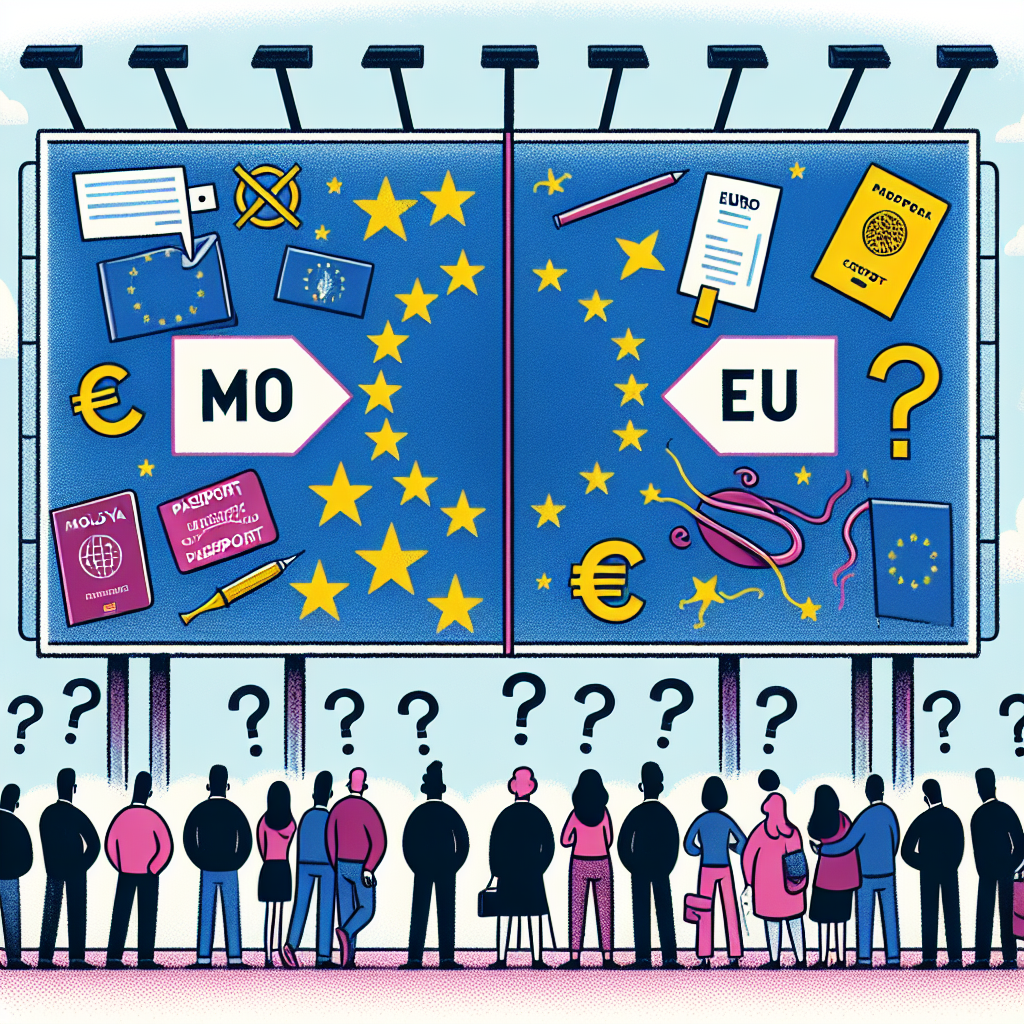Divided Views in Moldova as EU Membership Referendum Approaches
-
Table of Contents
Divided Views in Moldova as EU Membership Referendum Approaches

Introduction
As Moldova gears up for a pivotal referendum on European Union membership, the nation finds itself at a crossroads. The upcoming vote has sparked a heated debate, reflecting deep-seated divisions within the country. This summary explores the key aspects of the ongoing discourse and the potential implications of the referendum.
Public Sentiment: A Nation Split
The Moldovan populace is sharply divided over the prospect of joining the EU. The referendum has become a focal point for discussions on national identity, economic prospects, and geopolitical alignment.
- Pro-EU Advocates: Supporters argue that EU membership would bring economic growth, increased foreign investment, and stronger democratic institutions.
- Opponents: Critics fear loss of sovereignty, cultural erosion, and potential economic challenges, advocating for closer ties with Russia instead.
Political Landscape: Parties and Leaders
Moldova’s political scene is equally polarized, with parties and leaders taking firm stances on the issue. The referendum has become a litmus test for political allegiances and future strategies.
- Pro-European Parties: These groups emphasize the benefits of integration with the EU, including modernization and reform.
- Pro-Russian Factions: These parties highlight the risks of EU membership and promote alternative alliances.
Economic Considerations: Weighing the Pros and Cons
The economic implications of EU membership are a major concern for many Moldovans. The debate centers around potential benefits versus the costs of integration.
- Potential Benefits: Access to a larger market, increased trade opportunities, and potential financial aid from the EU.
- Potential Drawbacks: Compliance with EU regulations, potential loss of traditional markets, and the cost of necessary reforms.
Geopolitical Implications: A Strategic Decision
The referendum is not just a domestic issue but also a strategic decision with broader geopolitical ramifications. Moldova’s choice could influence its role on the international stage.
- Western Alignment: EU membership could align Moldova more closely with Western Europe and NATO.
- Eastern Ties: Rejecting EU membership might strengthen ties with Russia and other Eastern nations.
Conclusion
As Moldova approaches its EU membership referendum, the nation stands at a critical juncture. The outcome will not only shape the country’s future direction but also reflect its citizens’ aspirations and concerns. The decision will have lasting impacts on Moldova’s economy, political landscape, and international relations.


















